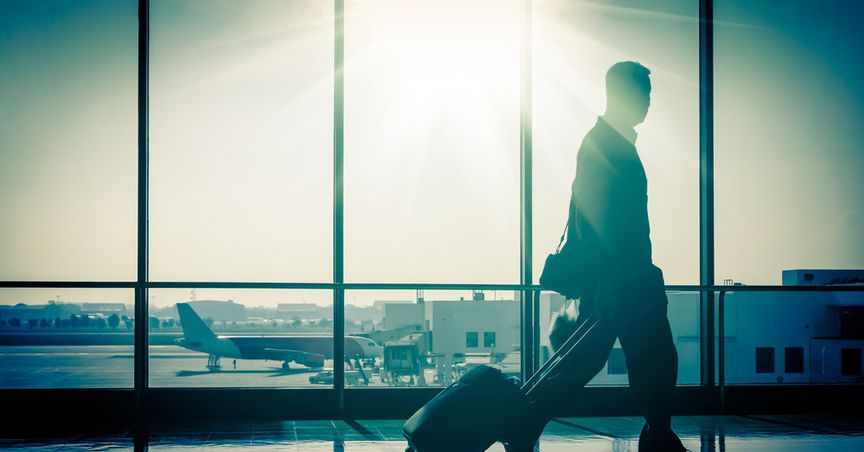Summary
- Airlines and travel firms owe up to £7 billion to British customers in cancelled bookings
- Travel firms facing bankruptcies
- Competition and Markets Authority launches investigation on the holiday accommodation sector
The coronavirus pandemic has brought about a devastating impact on the fortunes of many industries in the world. One of the most affected is the hospitality industry, which has been witnessing a drop in revenue levels at unprecedented levels. In the United Kingdom, the sudden cancellation of millions of bookings when the pandemic broke out in the country meant that the airlines and hospitality firms had to grapple with hundreds and hundreds of refund claims. They were faced with the prospects of an elongated recessionary period, coupled with an impending bankruptcy threat, which prompted many companies to find ways of deferring the refunds due to their customers. According to industry sources, travel companies are currently withholding refunds close to the tune of £7 billion and risk losing the public confidence in the process.
According to the Denied Boarding Regulations, if you fly by a UK or EU based airline, you are offered protection and are entitled to receive a refund if a flight gets cancelled. Additionally, the Packaged Travel Regulations state that you should get a holiday package refund within 14 days of cancellation.
The current situation is a grim reminder of the ordeal consumers had to face last year when Thomas Cook, one of the oldest British travel and hospitality firm, went into bankruptcy. Not only did several of its customers face unjustifiable delays in getting their refunds, but many of them got stranded across the world when the company approached the government to arrange special flights to bring them back.
Similarly, this time around also, the risk of bankruptcy is looming large on several of the companies in the travel industry. Should any of these companies fail before refunding customers money, it will be an uphill task to get that money back. This situation is precarious on both sides, while the refunds to customers are more than just important at this time as many of them could be facing financial troubles because of the lockdown, on the other side people working in the industry are also facing the possibility of unemployment as their employers won't be able to pay them salaries for long in the event of prolonged loss of business activity.
The aggrieved customers in this situation have two remedies at their disposal. First, they may make a claim with their travel insurance companies or institute consumer case against the defaulting companies. The first option though viable, would not bring effective relief to all consumers in the country as very few have insurances that cover their entire trip costs or at least a major part of it. On the other hand, instituting a consumer case would be a long drawn and expensive affair, which may not be feasible for many. The best option in many cases, thus, would be for customers to work with the companies and either accept a delayed payment or reschedule their holiday plans.
Will the ongoing Government support revive the industry?
The government has provided much-needed support to the hospitality industry in the country to fight the business slowdown during the shutdown period. Most of the companies have been able to place their employees under the benefit of the furloughing scheme, announced by the government in March. The scheme which pays 80 per cent of the salaries of retained employees up to a maximum of £2,500 per employee per month, has taken off a lot of financial burden from the shoulders of these companies. Other than that the Bounceback loan scheme, gave much-needed cash support these businesses to restart their operations at the earliest, while not worrying about repayments of loan instalments or interest for the first year.
The industry, however, is expected to make a slow revival with the social distancing measures being in place for all travelers and holidaymakers and compulsory quarantine requirements on all international travellers entering the United Kingdom would, which would result in business picking up slowly. While announcing the three-phased lockdown opening plan, the government had also announced that it will open up the hospitality industry in the end, after ensuring that the first two phases have not resulted in any significant spike in infection rates in the country.
The road to recovery, thus of the British hospitality industry will be an arduous one. While the blame of bringing the pandemic into the country is being put squarely on international travellers, the industry has to be extra cautious that it is not blamed again for any spike in infections in the country. The situation, however, is expected to improve when a vaccine is ready to prevent against the infection of this virus, which again would not happen till the end of this year even in the best-case scenario. Till that time, at least the industry would face difficulty in making its ends meet.
While the Government says that laws to claim refund from travel firm are very much in place, and that customers should get the claim, but at the same time it has not taken any step to help them claim their refunds either.
It's not only the United Kingdom where the hospitality industry is facing a crisis of refunding customer booking money. Countries like France, Italy and Germany, which also receive a large number of tourists and holidaymakers are faced with similar problems and are devising means to deal with it. European Commission has urged its member nations to come out with Refund Credit Notes, to offer financial protection to the customers. Even the UK Government could consider these, as an alternate to cash refunds, from hospitality firms’ holiday packages.
The Competition and Markets Authority (CMA) has already launched an investigation into the country's holiday accommodation sector, after having received thousands of complains of companies holding customer monies and is also issued warnings that strict action will be taken against defaulting companies.
It is highly likely that this battle will intensify in coming days unless the government steps in to aid the businesses or the customers or both. The probability at this time of the companies being able to pay back from the profits they earn over the next few months is slim, therefore a suitable government intervention might bring in some relief.






